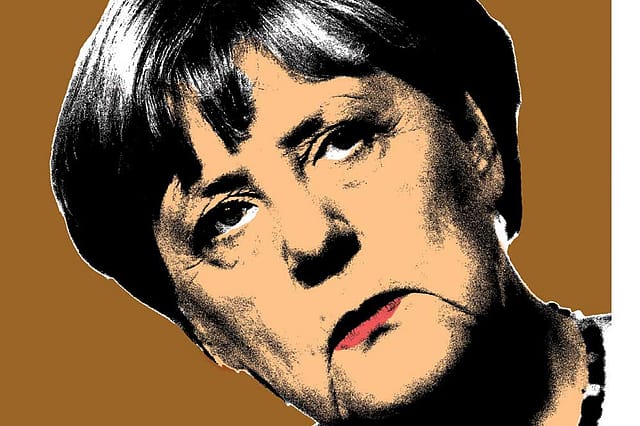Angela Merkel: Minimum Leader

ANGELA MERKEL HAS been a familiar hand in a Europe and, in fact, a world that is increasingly getting turbulent—with the Euro crisis, the rise in Western far right politics, the mess in the Middle East and the emergence of Donald Trump. Merkel’s Germany has been an anchor of stability. She has been hailed as the leader of the European Union and the ‘new leader of the free world’, someone who has persuaded her country to be more large- hearted, opening its doors to refugees, standing up to Vladimir Putin and Trump and even offering to negotiate between North Korea and the US.
But all is not right at home. She has won the elections and is set to remain Germany’s Chancellor. But she has managed to do this with a percentage of votes that is much lower. Merkel’s Christian Democrat Union (CDU), along with its sister party, the Christian Secular Union (CSU), came first with 33 per cent of the vote, but they are down by more than eight percentage points since their last election, and lost more than a million votes to the xenophobic and rabidly anti-European, Alternative for Germany (AfD), which will now become the first far right party to win seats in the German parliament since World War II. Merkel suddenly appears isolated at home, surrounded by skeptics instead of allies.
2026 Forecast
09 Jan 2026 - Vol 04 | Issue 53
What to read and watch this year
Merkel will govern Germany. But the big question is: with whom and how? The next largest party, the Social Democrats, have ruled out another ‘grand coalition’, preferring, instead, to sit in opposition. Her best bet is the so-called ‘Jamaica’ coalition with the Green party and the Free Democratic Party (FDP). But it is going to be an unwieldy and complicated tent of different ideological hues. The Greens and FDP don’t see eye to eye on many issues— from refugees and the European integration to environment. President Emmanuel Macron of France has begun presenting ambitious proposals for Euro-zone reform, but this is unsupported by the FDP. Christian Lindner, FDP’s chief, has called the so-called Jamaica coalition ‘barely conceivable’, while his Green counterpart Cem Özdemir has said the two parties are ‘like cat and dog’. To complicate matters more, the sister party of Merkel’s CDU, the CSU, is demanding a cap to the number of refugees who can be granted asylum, something Merkel, the FDP and the Greens strongly oppose. And then there’s going to be the over 90 noisy and aggressive AfD delegates in parliament to contend with. But, as her supporters point out, if there’s anyone who can do this, it is Merkel. She found herself in a somewhat similar situation when she was first elected chancellor more than a decade ago, but Merkel still managed to form a successful coalition.
As a recent Economist profile of Merkel mentions, despite her many years in public office, she continues to remain a conundrum. ‘The chancellor’s record is seemingly one of contradictions: the centre- right politician who let in 1.2 million immigrants, the “new leader of the free world” whose name is a byword for inaction (literally, in the German neologism “to merkel”), the liberal hero who voted against gay marriage,’ it said, adding that she is reactive, not programmatic, someone who manages events as they arise instead of hatching long-term plans.
Germany has been enjoying a golden age economically, but there are several clouds gathering over the horizon. The mighty auto industry is in crisis, the population is ageing, the many refugees it has taken in need to be assimilated, and internationally, Merkel along with Macron will have to play a leading role in Brexit negotiations. And then there will be the issue of finding a successor for her party. In her fourth and possibly final term, Merkel, Mutti or Mommy, for fans, faces her most challenging period yet.
